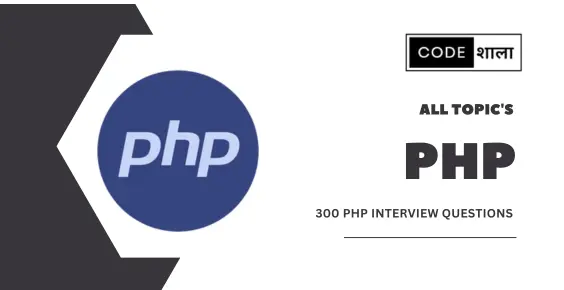In the world of web development, PHP has been a dominant force for many years. With its vast array of frameworks, developers have found efficient ways to build powerful and scalable applications. One key component that plays a crucial role in PHP frameworks is middleware. In this article, we will delve into the concept of middleware, understand its importance in PHP frameworks, and explore how it benefits developers and applications alike.
What are Middleware in PHP Frameworks?
Middleware is a significant aspect of PHP frameworks, acting as an intermediate layer between the incoming HTTP request and the corresponding response. It provides a modular way to handle and process requests before they reach the final destination, which is often a controller or an endpoint. Middleware intercepts requests, performs specific tasks, and then passes them along to the next middleware or the final destination.
How Middleware Works
Middleware functions are executed in the order they are registered, and they have access to both the request and response objects. This allows them to inspect incoming data, modify it, or take action based on specific conditions. Middleware can perform tasks such as authentication, logging, data validation, and more, making it a versatile tool for developers.
The Importance of Middleware in PHP Frameworks
Middleware plays a vital role in enhancing the functionality and performance of PHP applications. Let’s explore why middleware is so important in the context of PHP frameworks:
1. Modular and Reusable Components
Middleware is designed to be modular and reusable, promoting better code organization and maintainability. Developers can create middleware for specific tasks and reuse them across different parts of the application, making it easier to manage complex projects.
2. Request Filtering and Validation
By intercepting incoming requests, middleware can perform filtering and validation tasks. It ensures that the data received is valid and meets the necessary requirements before proceeding with the request. This adds an extra layer of security to the application.
3. Authentication and Authorization
Middleware enables developers to implement robust authentication and authorization mechanisms easily. It can verify user credentials, check permissions, and restrict access to specific resources, safeguarding sensitive data and functionalities.
4. Logging and Error Handling
Logging is critical for monitoring and troubleshooting applications. Middleware can log incoming requests, responses, and any errors encountered during the request-response cycle, helping developers identify and fix issues promptly.
5. Caching and Performance Optimization
Middleware can also be used for caching frequently accessed data or responses. By serving cached content, it reduces the response time, enhancing the overall performance of the application.
6. API Handling and Rate Limiting
For applications with APIs, middleware can manage API requests and enforce rate limits to prevent abuse and ensure fair usage. This is especially useful for applications relying on third-party APIs.
7. Localization and Internationalization
Middleware can be leveraged to handle localization and internationalization tasks. It can detect the user’s preferred language, set the application locale, and format data accordingly.
8. Maintenance Mode and Under Construction Pages
During maintenance or updates, middleware can be used to display under construction pages or inform users about temporary unavailability.
9. Compression and Content Encoding
Middleware can compress responses to reduce bandwidth usage, enhancing the application’s performance, particularly for users with slow internet connections.
10. Data Transformation and Normalization
When dealing with various data sources, middleware can transform and normalize data to ensure consistency and compatibility throughout the application.
Advantages of Middleware in PHP Frameworks
Let’s delve deeper into the advantages of using middleware in PHP frameworks:
1. Improved Code Organization
Middleware promotes cleaner and more organized code, allowing developers to separate concerns and adhere to the principles of a well-structured application.
2. Enhanced Security
With middleware handling authentication, authorization, and input validation, the application becomes more secure and less prone to common security vulnerabilities.
3. Faster Development Process
Middleware provides a set of pre-built functionalities that developers can integrate into their applications, reducing development time and effort.
4. Easy Integration
Middleware can be seamlessly integrated into existing PHP frameworks without significant modifications, making it an ideal choice for extending functionalities.
5. Scalability
By having modular and reusable middleware components, developers can scale their applications efficiently, adding new features as needed.
6. Developer-Friendly
Middleware simplifies the development process by handling repetitive tasks, allowing developers to focus on more critical aspects of the application.
7. Greater Flexibility
Middleware enables developers to customize the request-response cycle based on the specific needs of the application, offering unparalleled flexibility.
FAQs (Frequently Asked Questions)
FAQ 1: What Are the Most Popular PHP Frameworks That Utilize Middleware?
Answer: Several popular PHP frameworks use middleware, including Laravel, Symfony, and Slim. These frameworks provide extensive support for middleware, making it easy for developers to enhance their applications’ functionalities.
FAQ 2: Can Middleware Affect Application Performance?
Answer: Yes, middleware can impact performance, especially when poorly implemented. However, when used correctly, middleware can significantly improve performance by optimizing tasks and reducing redundant operations.
FAQ 3: Is Middleware Limited to Web Applications?
Answer: No, middleware can be employed in various contexts beyond web applications. It can be utilized in microservices, API development, and any system that involves processing data and requests.
FAQ 4: Can I Create Custom Middleware for My PHP Application?
Answer: Absolutely! PHP frameworks provide the flexibility to create custom middleware, allowing you to tailor it to your application’s unique requirements.
FAQ 5: Are There Pre-Built Middleware Packages Available?
Answer: Yes, many PHP frameworks offer pre-built middleware packages that you can readily integrate into your application. These packages cater to various functionalities, saving development time.
FAQ 6: How Does Middleware Compare to Filters in PHP?
Answer: Filters and middleware serve different purposes. While filters primarily focus on data validation and sanitization, middleware encompasses a broader range of tasks, making it more versatile.
Conclusion
Middleware forms the backbone of PHP frameworks, adding essential functionalities and streamlining the request-response cycle. Its versatility, reusability, and efficiency make it a valuable tool for developers looking to build powerful and secure applications. By leveraging middleware, developers can enhance their PHP applications, achieve better code organization, and optimize overall performance.
So, if you’re a PHP developer or someone exploring the world of web development, understanding middleware is a crucial step towards building robust and efficient applications.







